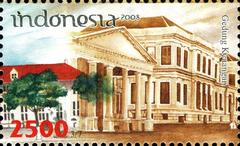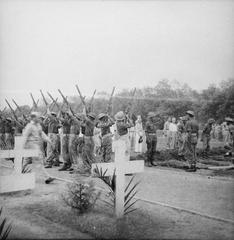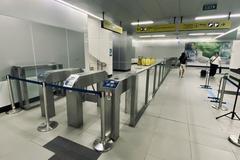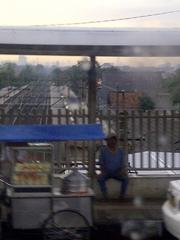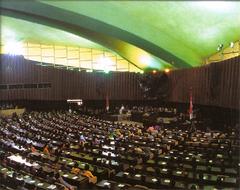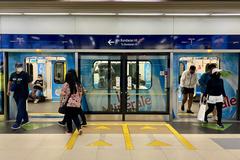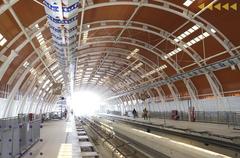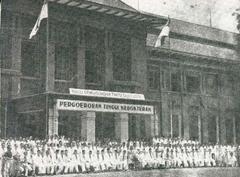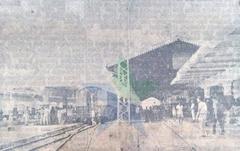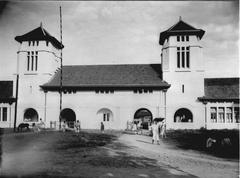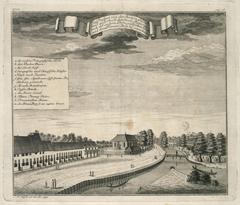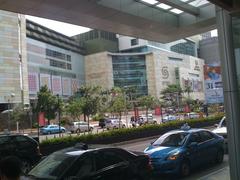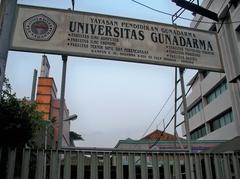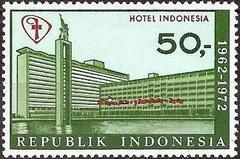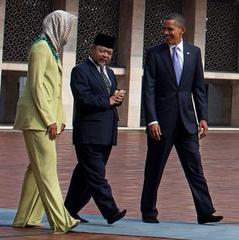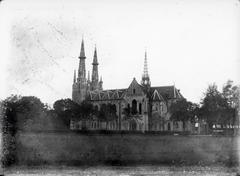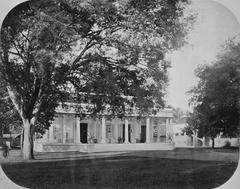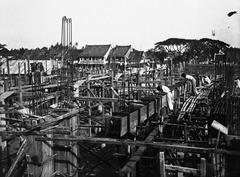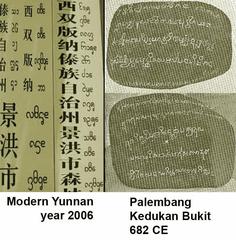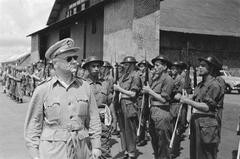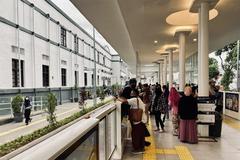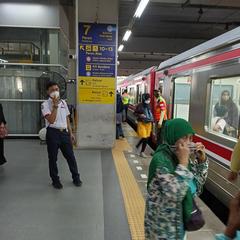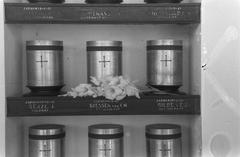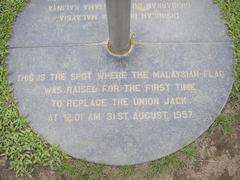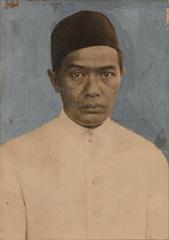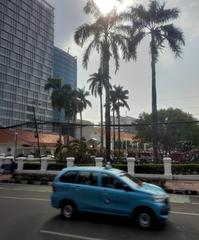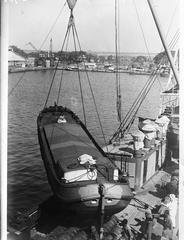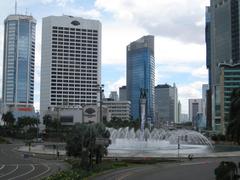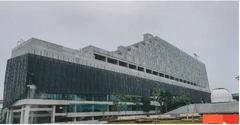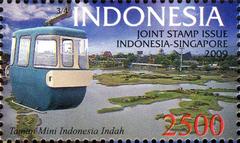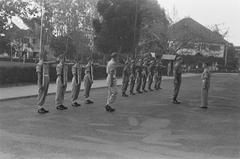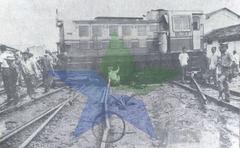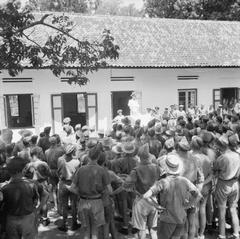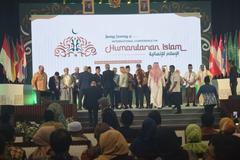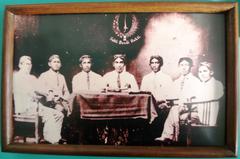Cipinang Penitentiary Institution Visiting Hours, Tickets, and Jakarta Historical Sites Guide
Date: 15/06/2025
Introduction: The Legacy of Cipinang Penitentiary Institution
Cipinang Penitentiary Institution, located in East Jakarta, Indonesia, is a renowned correctional facility deeply intertwined with the nation’s political and cultural evolution. Established during the Dutch colonial era, Cipinang has housed prominent political dissidents, nationalists—including Indonesia’s first vice president Mohammad Hatta—and celebrated writer Pramoedya Ananta Toer. Over decades, the prison has become a symbol of Indonesia’s enduring struggle for justice, reform, and freedom of expression. Today, while Cipinang remains a high-security institution with restricted access, it serves as a powerful historical site for those interested in understanding Indonesia’s legal heritage and reform efforts. This comprehensive guide covers visiting protocols, historical background, practical tips, and nearby cultural attractions for a nuanced exploration of Jakarta’s historical landscape. For official updates and in-depth insights, consult resources such as the Jakarta Tourism Website, Inside Indonesia, and Amnesty International Indonesia.
Table of Contents
- Introduction
- Visiting Cipinang Penitentiary Institution
- Historical Significance
- Cultural and Symbolic Importance
- Practical Visitor Tips
- Frequently Asked Questions (FAQ)
- Conclusion
- Additional Resources and Links
Visiting Cipinang Penitentiary Institution
Visiting Hours and Ticket Information
Cipinang Penitentiary is not a conventional tourist attraction. Regular public tours are not offered, and general access is limited to family members of inmates, official delegations, or specially authorized educational and cultural groups. Visiting hours are typically Monday to Friday, 9:00 AM to 12:00 PM and 1:30 PM to 3:00 PM, though these may vary on certain days (e.g., early closures on Fridays, occasional Saturday openings). Always confirm visiting times with the institution prior to arrival.
There are no official ticket sales for entry. Visits require pre-authorization and valid documentation. Occasionally, special events or NGO-led programs may provide limited access through prior coordination with the administration.
Accessibility and Location
Cipinang Penitentiary is located at Jl. Raya Cipinang Besar Selatan, East Jakarta. The site is accessible by car, taxi, or rideshare services such as Grab and Go-Jek. Public transportation exists but may be less convenient for visitors unfamiliar with Jakarta. Be aware that security is stringent, and all visitors must present valid identification (passport or KTP) and the full name of the inmate or event contact. There are no amenities for visitors inside the facility; basic services are available in the surrounding area.
Special Access and Events
While routine tours are not available, Cipinang has occasionally hosted unique cultural and educational events, including the Cipinang International Hip Hop Festival in 2008 (HipHopDX Asia). NGOs and cultural organizations sometimes organize visits focused on human rights and historical education. Interested parties should contact official channels or partner organizations well in advance.
Historical Significance
Constructed by the Dutch colonial government, Cipinang Penitentiary was designed to detain political opponents and nationalists. Throughout the 20th century, it gained notoriety during the Suharto “New Order” era as a place where political prisoners, activists, and separatists were incarcerated. The imprisonment of figures like Mohammad Hatta and Pramoedya Ananta Toer highlights its pivotal role in Indonesia’s political history (Wikipedia).
Overcrowding is a persistent issue, with the prison often housing up to 4,000 inmates in facilities intended for 1,500. This has led to significant disparities in living conditions, often reflecting broader social inequalities (Inside Indonesia, VICE).
Cultural and Symbolic Importance
Cipinang has transcended its function as a correctional facility to become a symbol of Indonesia’s struggles with justice, freedom, and expression. The prison’s use as a platform for cultural events, such as the 2008 hip hop festival, demonstrates its capacity for resilience and artistic expression, even within restrictive environments (HipHopDX Asia). The stories of incarcerated artists and intellectuals have further solidified Cipinang’s place in the nation’s collective memory.
Practical Tips for Visitors
- Advance Coordination: Contact the penitentiary administration or official cultural organizations before planning your visit.
- Required Documentation: Bring valid ID (passport or KTP) and know the full name of the inmate or event contact.
- Dress Code: Wear modest, respectful attire; inappropriate clothing may result in denied entry.
- Security Procedures: Expect thorough screenings; bring only essential items and avoid restricted objects (phones, cameras, sharp items).
- Respectful Conduct: Maintain decorum and follow all rules during your visit.
- Language Barrier: Staff may have limited English proficiency; consider bringing an interpreter if needed.
- Avoid Unofficial Payments: Do not engage in bribery or offer gifts to staff, as this is illegal under Indonesian law.
Frequently Asked Questions (FAQ)
Q: Can I visit Cipinang Penitentiary as a tourist?
A: General public tours are not available. Visits are restricted to authorized individuals, such as family members of inmates, official groups, or pre-approved educational/cultural delegations.
Q: How do I arrange a visit for educational or cultural purposes?
A: Contact the prison administration or partner organizations well in advance for permissions and requirements.
Q: Are there entrance fees or tickets?
A: There are no official fees or tickets. Any request for unofficial payment should be refused.
Q: What identification is needed?
A: A valid Indonesian ID (KTP) or passport is mandatory for entry.
Q: Can I bring gifts or food?
A: Small items may be permitted but are subject to inspection. Large quantities or prohibited items are not allowed.
Nearby Historical and Cultural Attractions
Enhance your visit to East Jakarta by exploring nearby points of interest:
- Taman Mini Indonesia Indah (TMII): A national cultural park featuring traditional houses, museums, and performances.
- Museum Sumpah Pemuda: Celebrating the Youth Pledge and Indonesia’s path to independence.
- Setu Babakan: A Betawi cultural village with traditional cuisine, music, and crafts.
These attractions offer a broader understanding of Jakarta’s diverse heritage.
Conclusion
Cipinang Penitentiary Institution stands as a profound marker of Indonesia’s political journey, social struggles, and enduring cultural resilience. While not open to mass tourism, the facility’s historical significance and occasional cultural programming make it a unique destination for those with a keen interest in Indonesia’s legal, social, and cultural evolution. Proper preparation, respectful conduct, and compliance with all regulations are crucial for any visit. To enrich your experience, consider exploring neighboring cultural landmarks and keep updated with official sources for the latest information.
Additional Resources and References
- Cipinang Penitentiary Institution – Wikipedia
- Inside Indonesia – Prison Stories
- VICE: In Indonesia, Prison Is a Life of Luxury As Long As You Can Afford It
- HipHopDX Asia: Cipinang – International Hip Hop Festival
- Official Jakarta Tourism Website
- Amnesty International Indonesia
- Indonesian Ministry of Law and Human Rights
- Indonesia Expat – Visiting Cipinang Penitentiary
- Coconuts Jakarta – Cipinang Prison Luxury Cell Scandal
- IES Jakarta Prison Ministry
- Lonely Planet – Indonesia Travel Tips
- Jakarta Travel Guide
For the most accurate and current information, always consult official websites and trusted organizations. Utilize travel resources and apps for personalized recommendations and up-to-date guidance.
